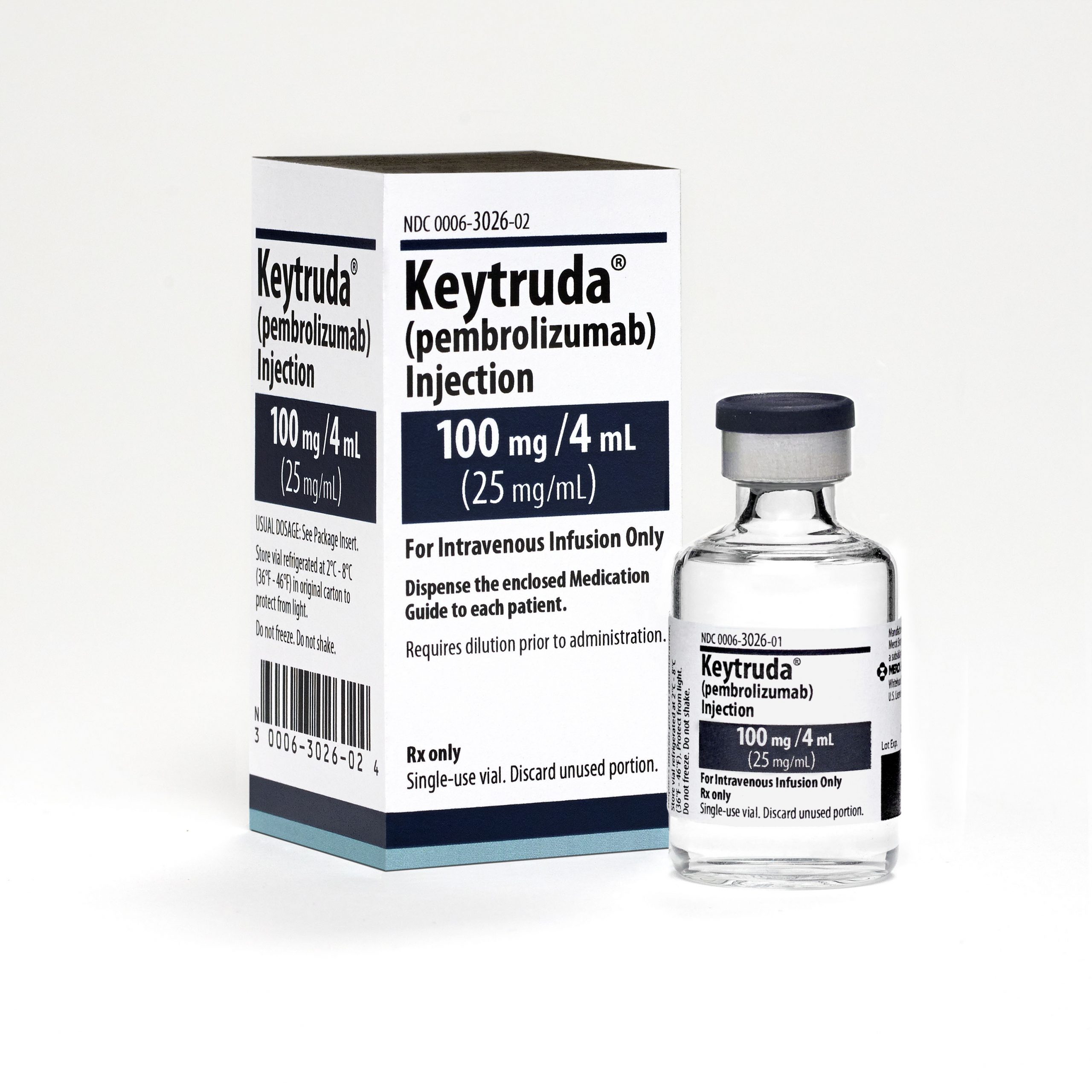Merck bags adjuvant okay for Keytruda in melanoma

Checkpoint inhibitors have already revolutionised the treatment of advanced melanoma, and Merck & Co has just claimed approval for even earlier use of its Keytruda product in Europe.
The European Medicines Agency has approved PD-1 inhibitor Keytruda (pembrolizumab) as an adjuvant therapy for adults who have undergone surgery to remove melanoma, based on clinical results showing it can reduce the risk of the cancer returning.
The green light comes just a few week after Merck’s arch-rival in the PD-1 inhibitor class – Bristol-Myers Squibb, won EU approval for Opdivo (nivolumab) in the same patient population. Both drugs have been cleared for patients with stage III melanoma that has shown signs of spread into the lymph nodes, which raises the risk of a relapse.
Last month, NICE recommended interim NHS funding for Opdivo in these patients via the Cancer Drugs Fund (CDF).
Keytruda will now compete in the indication after a separate decision from NICE backing interim reimbursement for Keytruda in this use from the CDF.
NICE wants to see further survival data from the KEYNOTE-054 to verify that Keytruda is cost effective for the NHS, with the information due before December 2021.
Quarterly Keytruda sales overtook Opdivo’s for the first time earlier this year, mainly because Merck’s drug is dominating the much larger non-small cell lung cancer (NSCLC) market.
Opdivo is already approved for adjuvant therapy of melanoma in the US however, as is BMS’ CTLA4 inhibitor Yervoy (ipilimumab), so Merck is still playing catch-up in that market although it submitted Keytruda for FDA approval for this use in June.
Keytruda’s approval by the EMA comes on the back of the phase III KEYNOTE-054 trial, which showed that the drug reduced the risk of disease recurrence or death by 44% compared to placebo. At 12 months’ follow-up, the relapse-free survival rates were 76% and 61% respectively, dropping to 72% and 54% after 18 months. Merck says it is the first approval for Keytruda in any adjuvant setting in the EU.
Until the emergence of cancer immunotherapies, the only adjuvant options for melanoma patients were interferons and – for patients with BRAF-positive tumours – kinase inhibitors such as Novartis’ Tafinlar (dabrafenib) and Mekinist (trametinib). Yervoy has fallen out of favour somewhat for adjuvant therapy however, because Opdivo has been shown to be more effective and easier to tolerate.
Both Keytruda and Opdivo are also being developed for neoadjuvant therapy, in other words prior to surgery in order to reduce the tumour mass and improve the chances of long-term remission.
A phase II trial of Opdivo and Yervoy in this setting – called OpACIN-neo – was reported at this year’s ESMO meeting and found that the combination was more effective than Yervoy alone, despite being associated with considerable toxicity.
Meanwhile, at the American Association for Cancer Research (AACR) meeting in the US in April, Keytruda was found to improve recurrence-free survival by 55% at one year when given ahead of surgery for stage III or stage IV resectable melanoma.













